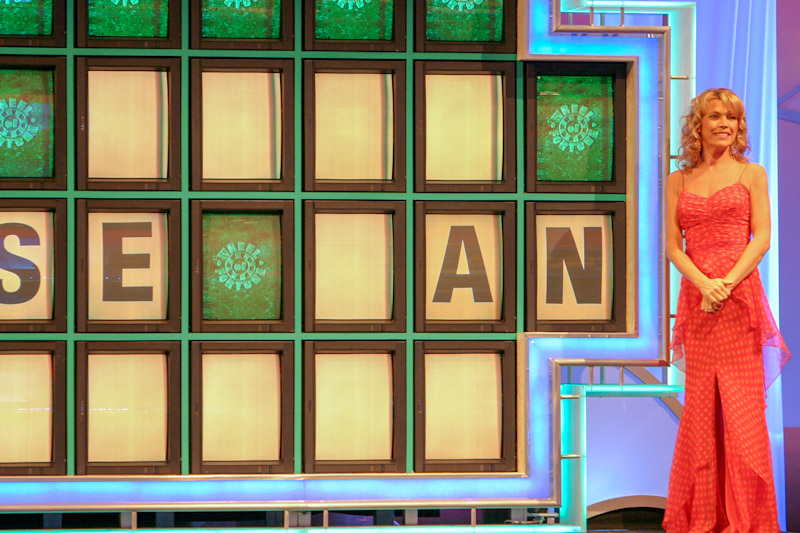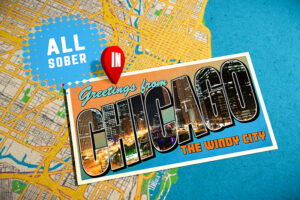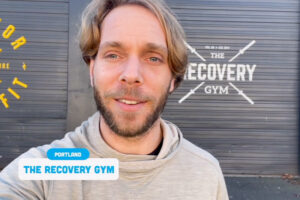The Old Way Didn’t Work: Solving Problems in Recovery
Open communication and taking ownership aren't easy, but get to know them, and you can do some real repair work. Here's how

The bad news: Your problems don’t immediately go away when you stop using. As you carry on in life sober, you’ll even be smacked with entirely new problems, but in early recovery, you’ll have plenty of patching up to do as it is. The good news: You can be better equipped to handle these problems now, through communication, patience, assertiveness and a dash of common sense.
Problem-solving is a skill we learn early and continue to build upon as we grow. The techniques we use to problem-solve evolve and change based on our experiences and environments. Some problems are intractable, though, and when solving a problem seems complicated, we find ways to avoid the problem. One way, of course, is the use of drugs and alcohol.
Substance use creates an escape and relieves us from the stress of our reality. Logically, we know this isn’t helpful in the grand scheme — count, if you can even begin to, the number of problems cleared up versus created by your substance use — but our desire to avoid emotions sometimes outweighs our logic.
If you’ve found your way to this article, you likely have had more than a few problems arise from your substance use. But now, in recovery, you can find the clarity and confidence to work them out or make peace with them. Let’s take a spin through some problem-solving skills, and while we’re at it, tackle the very closely related challenge of rebuilding significant relationships.
That’s a Problem! (What Is?)
A problem is anything that causes conflict between two people or two entities. Defining a problem in your life is subjective, meaning only you can make that determination, although doctors, lawyers, employers, friends and family can — and most likely have — given you their opinions.
Problems tend to be things that impact or impede our ability to live our lives how we want. Luckily, problems can be fixed, situations can be changed, and resolution is possible. The first step to addressing and resolving an issue is defining the problem.
Regrets, I’ve Had a Few. How Can I Solve Problems?
Here are some steps to help you get started.
1) Identify the Problem
You have identified a problem that needs to be solved, meaning you’re already on your way to finding a resolution. Now you can work to take steps to address the problem and find a solution.
When a problem involves only one person — lost your phone; no clean underwear — it tends to be easier to solve. You are the beginning, middle and end of the situation. You can problem-solve to find the solution that makes the most sense to you. When a problem involves others, it can be more challenging to determine how to address it.
One helpful strategy in problem-solving is to open communication with the other individuals involved. Call attention to the problem in a productive way by bringing it into the light. People commonly use various defense mechanisms to avoid conflict or feeling uncomfortable in a situation; they sweep things under the rug or let them fester. This is, at best, a temporary fix and does nothing but add stress to an already stressful situation.
Fear of the unknown can be one of the biggest barriers in the problem-solving process. Pause, take a deep breath, and remind yourself that addressing a problem doesn’t cause more tension. It helps find a resolution.
2) Talk About the Problem
Communication is a big, big, big part of problem-solving. We can express ourselves and share our thoughts and feelings with others by talking — but we have to listen as well. Active listening ensures that information is being presented and received how it is meant to be, that they’re picking up what we’re putting down. No miscommunication that way.
Now. Being an active listener can be difficult in recovery when it comes to problems from, well, before. Inconveniently, those problems didn’t just go away.
It can be tough to listen to and discuss things you may have done while using. You don’t even remember them, you’re not that person any more, etc. When individuals feel like they are being attacked or blamed, they can become defensive. We put up our guards and either stop listening or begin to attack and blame the other person as a way to deflect attention or responsibility. This is a great strategy — for creating more problems.
So, while discussing such topics can be difficult, it is crucial to remember that listening is just as important as talking. When you’re talking through tough conversations, it may be helpful to set ground rules, take breaks and remind yourself of the purpose of the conversation.
3) Rebuild Relationships
As you likely now know, your drug and alcohol use can significantly impact not only you but also your family and friends. Addiction is a family disease, and there is a ripple effect from the consequences of using. Choices made in active addiction have lasting effects; relationships are damaged, and trust is broken.
One of the first steps to rebuilding relationships and earning trust is taking ownership of your actions. Have a conversation with yourself before you start talking to others.
Rebuilding relationships takes time, and everyone involved has emotions to sort through. Taking ownership is the first step; the second is giving others the space to express themselves. We don’t like hearing we have done wrong, but if we wish to rebuild, we must allow those we’ve hurt to share their feelings with us. It might be a difficult process, but it helps heal the relationship and highlights the steps needed to repair trust.
If we value our relationships with friends and family, we must put in the time and work to weld broken bonds and mend our connections. We can learn from our experiences and, through our growth and sobriety, work to show those around us the changes we have made.
If you’re in recovery, you have already found some solutions to one problem, probably the biggest one. You’ve more than earned the chance to take a shot at the others.
More Lifestyle
The Definitive Guide to Sober Travel
Vacations shouldn't be nerve-racking, but in recovery, it's not always that simple. We asked three sober travel pros how to make your trips fun — and more fulfilling than ever.
Sure-Bet Sober Date Ideas
Ready to get back out there? Sober dating isn't so hard. But here are a few pointers anyway, to help you find your groove.
Sobriety Roundtable: What's Your Favorite Sober Activity?
From roller derby to CrossFit and dog fostering to splurging on Mexican, nine sober folks shared what they do for fun and fulfillment. Get some ideas for your own Dry January or longer-term sobriety!
The Joy of Baking (Sober)
Two months sober, Annie Zimmerman decided to make cookies. Now, her hobby turned passion yields fulfillment, connection and delicious soberversary cakes. Read the interview!
Now Elite NFL Players, They First Tackled Addiction | News Roundup
All Sober compiles the best of the latest headlines. Here's your addiction and recovery news for the week of Feb. 19, 2024!
All Sober in Chicago
A great town for recovery, come sun, rain or snow! Check out our video guide to the Windy City's best sober options for bars, bottle shops — and even an arcade with vintage games.
All Sober in New York
The Big Apple truly has it all — including a sober bar with a "witchy vibe" and an array of enchanting non-alc cocktails. Take a peek in our video guide to the sober city!
All Sober in Portland
Oregon's cultural capital may be weird and proud, but it's sober and proud too! We scoped out the coolest sober-friendly spots in our new video guide.










